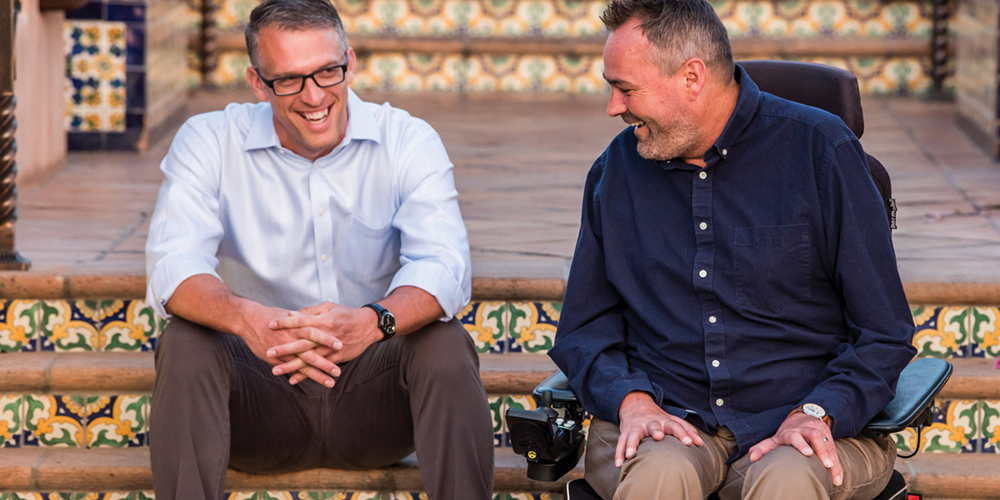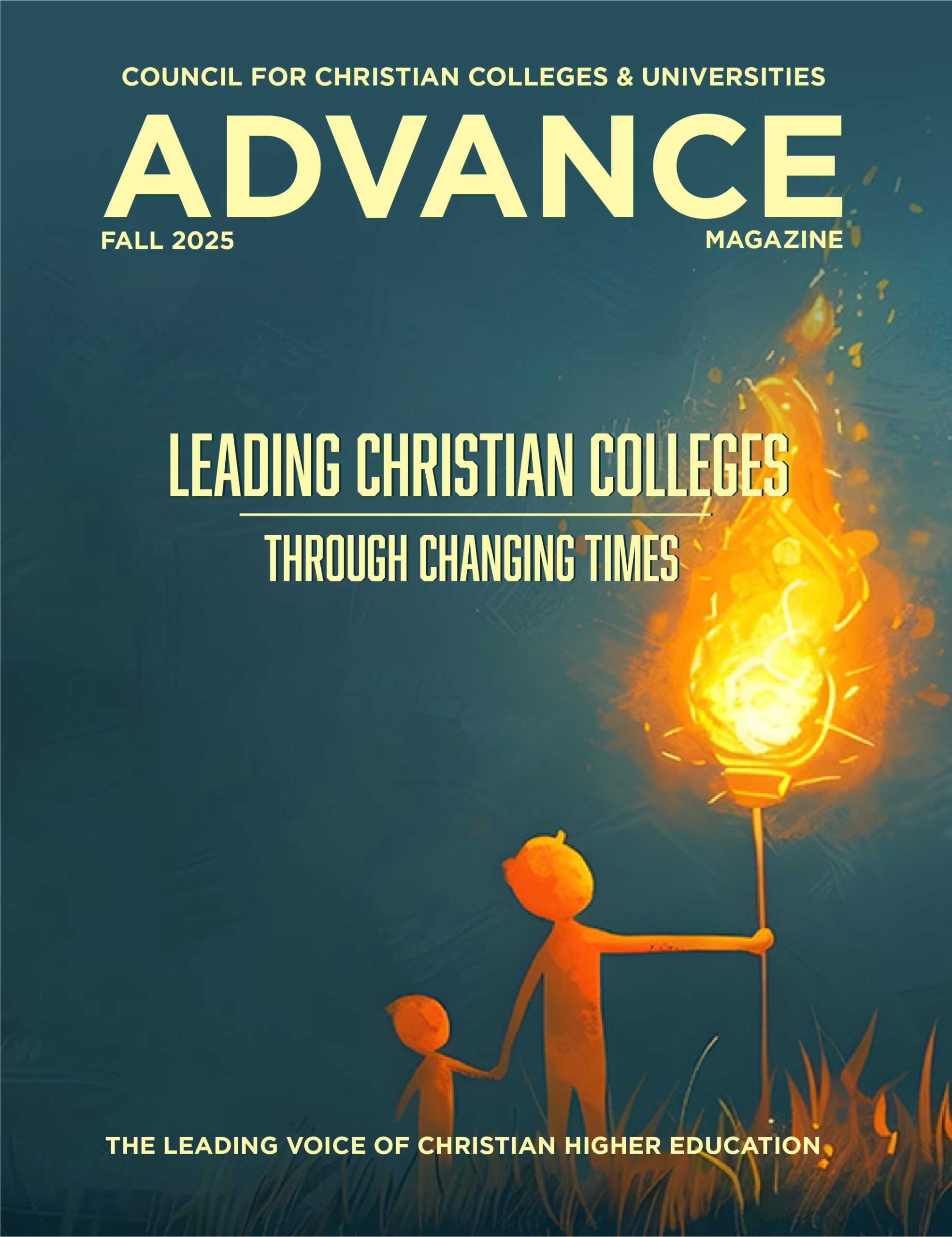Magazine
When we shared stories from our 500-mile wheelchair journey through Spain at the CCCU’s Presidents Conference and Multi-Academic Conferences this year, we talked about love as God intended. But conversations with attendees were filled with questions that dug deeper. Soon we were exploring the difference between love with conditions and the love God designed.
In Matthew 22, Jesus turned the religious world upside down when a Pharisee asked which was the greatest commandment:
Jesus replied: “‘Love the Lord your God with all your heart and with all your soul and with all your mind.’ This is the first and greatest commandment. And the second is like it: ‘Love your neighbor as yourself.’” (Matthew 22:37-39, NIV)
The two greatest commandments are simple: Love God! Love others! But to end this passage here would do a disservice to the intention of Jesus’ words. In verse 40, Jesus continues, “All the Law and the Prophets hang on these two commandments.”
All – not just some. This includes the verses we use to make ourselves feel better about our hate-filled rhetoric toward other religions or people who live differently than us; the verses historically used to justify slavery or to elevate one person to a higher status than another. Every passage, every teaching should be examined and applied through a lens of loving God and loving others. Every bit of scripture must be measured against Jesus’ words.
But what does this kind of love look like? If we return to Jesus’ teachings in Matthew, we get a pretty clear picture of love as God intended:
“Then the King will say to those on his right, ‘Come, you who are blessed by my Father; take your inheritance, the kingdom prepared for you since the creation of the world. For I was hungry and you gave me something to eat, I was thirsty and you gave me something to drink, I was a stranger and you invited me in, I needed clothes and you clothed me, I was sick and you looked after me, I was in prison and you came to visit me. … Truly I tell you, whatever you did for one of the least of these brothers and sisters of mine, you did for me.’” (Matthew 25:34-40)
When we do these things, we are not only loving those around us; we are loving God, because loving God is loving our neighbors – all of them. This includes the neighbors who don’t believe what we do; the ones who don’t live as we do. This includes our Muslim neighbors, our immigrant neighbors, our homeless neighbors, and our addicted neighbors.
In our time as students at CCCU institutions (Point Loma Nazarene University and Northwest Nazarene University), the seeds were planted and a hunger cultivated for a deeper understanding of God’s unrelenting, reckless love. It knows no bounds, is unoffended by any behavior, and bridges the gap created by anything we do, no matter how far we wander or how lost we become.
Our hope for our brothers and sisters that lead at Christian colleges and universities far and wide is that you will instill this truth into all who cross your path. Our understanding of scripture must reflect a love for God and a love for others. If it doesn’t, we have lost sight of the love God has for us, and we no longer reflect the love he has for others.
—–
Patrick Gray and Justin Skeesuck are the subjects of the documentary I’ll Push You and authors of the memoir by the same title, which tells the story of their 500-mile wheelchair journey through Spain. They are also the author/co-illustrator of the children’s book, The Push, and frequently speak at conferences on topics of faith, love, and leadership. To learn more, visit www.pushinc.us.



